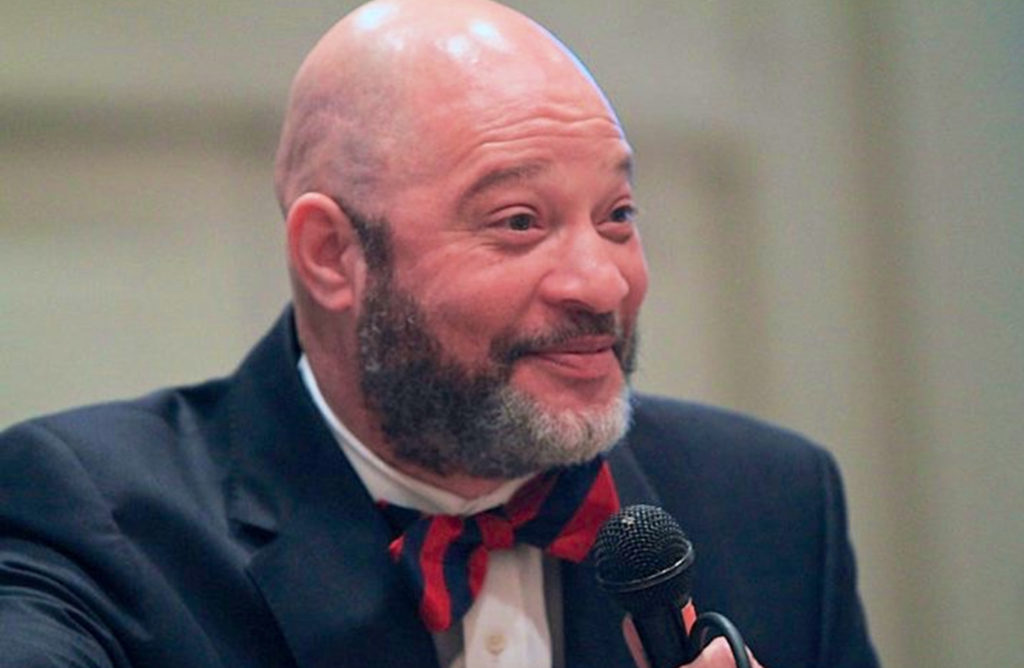
Jackson Doggette – NANOE Board of Directors – It’s Been My Pleasure
June 1, 2020
Jim Eskin Says, “Board Fundraising is Now a Necessity”
June 12, 2020What Happens to Nonprofits When Defunding Police? – Kathleen Robinson

What Happens to Nonprofits When Defunding Police is Professor Kathleen Robinson take on a fiery issue affecting all of civil society. Here’s what she has to share:
It is not surprising that some of the public wants to dismantle the policing system. When major safety, health and well-lbeing issues are ignored by society’s institutions, the very institutions set up to protect people and ensure justice are considered no longer viable. Those who have studied the cycle ofcommunity issue escalations will tell us that the time to deal with issues is BEFORE they reach the stage where institutional leaders loose much or all of their authority, the public’s respect, and their ability to correct the situation. If institutions do not correct themselves, the public will demand major corrections be imposed on them by other institutions.
History tells us that sometimes systemic and societal changes occur, and other times it does not when such a moment arrives. Let us hope we are in a moment when real change in several institutions happens. People are advocating for systemic change. But the needed change in the ‘system’ goes much deeper and wider than just the policing system. Change is needed in every system that interacts and connects with policing functions.
The word “defunding” is probably not the best verb to describe what most change advocates want. Yes, some do want to totally dismantle police departments in some cities. Anger and loss of trust cause people to want to do away with a system that has systematically shown prejudice, discrimination and threatens their lives. If your life, your children’s lives were constantly at risk, you would want such a system overhauled and, if not, dismantled. The time for overhaul is past for some. The issue has escalated way beyond the ‘someone should do something about this’ stage. It has gone way beyond the ‘you (police departments) should do something about this’ stage. It’s now in the “Forget it, we will make sure you’re changed, or we will create an alternative system. You no longer have the right to police because we no longer trust or respect you at all’ stage. Management options to correct policing are less than they could have been if they had not been ignored for so long.
However, the majority of those seeking change are not after doing away with policing. They want a strong, trusted, just police system. There are bad people in this world. There are those that do not respect or care at all about other people’s lives or property. Society needs ways to protect the public’s freedoms and rights guaranteed by our constitution. But ensuring those guarantees involves more than policing.
Over the years, the police have been asked to take on more and more of what use to be other organizations’ work. We dismantled our mental health system, and defunded health departments so that all the good work community health workers used to do is no longer present. We stopped ensuring adequate affordable housing was available in communities. We created food deserts. We continue to ignore that plight of countless numbers of veterans. The list goes on and on, but each of these federal, state, and local actions have created more work for police departments. It has overburdened our court system. It has turned prisons into detection centers for problematic individuals who could be helped better elsewhere. We have turned departments of social services into an extension of the police system.
What Happens to Nonprofits When Defunding Police?
Most advocates for change want standards of conduct and accountability increased in police departments. They want police unions that are more just and less political. They want police who have numerous complaints and violations to be taken off the force. They want police chiefs to be less subject to local politics so they can do what they know is the right thing to do without fear of losing their jobs. They want police to act independently from each other and follow and act on their personal moral and ethical code. Most want whistle blower intimidation within police departments to stop and be dealt with when it occurs. When police see their colleagues being abusive, brutal, and/or offensive, the public wants them to step in, stop it, and report it. Most want police to stop acting as if they were soldiers in a war using military equipment to deal with lawful protests. Most want the federal government to stop sending military equipment to local police departments without a much more rigorous set of standards that departments must adhere to and show evidence of before being funded and equipped. They want what money is given to police to go for functions related to a reduced set of roles and responsibilities in the community. They want what funds are given to be used to ensure that the police are properly screened before hiring, certified, continuously trained, and supported with proper mental health support services. They want the bad apples removed. Most police chiefs know who they are.
For many advocates of change defunding means increasing the requirements and standards for what qualifies police departments to get specific levels and kinds of funding. It means narrowing police officers’ jobs so that they are not expected to deal with mental health, homelessness, and a variety of poverty related issues. In some cases, the number of police in a department can be reduced, if there are proper nonprofit, local government, and private business services available.
If the police system in the USA was overhauled, it would mean additional funding and service opportunities for charitable nonprofits. It would particularly increase the funding available to nonprofits that deal with mental health, substance abuse, homelessness, domestic violence, child abuse, legal aid assistance, childcare, youth development and at-risk behaviors, food services, immigration and refugee services, and veteran affairs (just to name a few areas). It would increase the financial opportunities for city planning departments to build strong neighborhood planning units that work with low resourced neighborhood associations so that issues are addressed locally, quickly, by those that have the issues and those that can connect them to corrective resources, people, and services.
It would increase the financial opportunities for health departments to restore the community health educators that use to do such an effective job with local communities. They were in many ways more effective than departments of social services in dealing with complex social, health, and economic issues affecting residents within their catchment area. It would mean a return of an upgraded version of Healthy Community programs that were so effective in the 1980s and 1990s before they too were defunded.
Departments of social services would be overhauled so that workers were more qualified and equipped to deal with issues related to child abuse and neglect, child care, delinquency, child deaths, adoptions, adult protective services, foster care, refugee resettlement, and food assistance. All these services need to be re-examined, perhaps re-located to other departments, and the connection with and interaction between the department of social services and the police department re-examined and corrected.
Nonprofits that deal effectively with prisoner rehabilitation once they are released may have more funding opportunities so that former incarcerated individuals can find shelter, learn skills, be employed, find the needed health services (mental and physical), and restore healthy, positive relationships with their children and other family members.
Re-examining funding that goes to policing could increase the financial opportunities for private businesses too. Builders willing to build affordable housing for specific populations could be incentivized. Food stores that were willing to locate into food desert areas could be incentivized to move there. The paperwork for counselors and mental health providers could be reduced so it was not so burdensome and costly. This may help some counselors to take patients that want to use their insurance to do so again. More and more are going without mental health services because out of pocket costs have become prohibitive.
In short, police system overhaul is the tip of the iceberg of what needs to be restored, improved, and built in the USA. The bottom line is that some of the money given currently to police departments could be used elsewhere more effectively, could improve policing, reduce the job expected of them, and increase funding and service opportunities for many different kinds of nonprofits; city, county, state, federal public agencies; and selected private enterprises. We should not ask or expect the police to provide services that other nonprofit, private businesses, and local, state, and federal government agencies are better equipped and trained to handle. It is time to re-examine policing, what it is, what is should be, what is expected of them from other organizations and institutions, and what functions need to be handed over to other institutions and organizations that are better able to handle them. Federal, state, local government funding should follow accordingly. Philanthropy should invest accordingly.
What Happens to Nonprofits When Defunding Police was first posted at INSIDE CHARITY
For more articles like What Happens to Nonprofits When Defunding Police VISIT HERE
What Happens to Nonprofits When Defunding Police was authored by Dr. Kathleen Robinson co-founder of the National Association of Nonprofit Organizations & Executives
